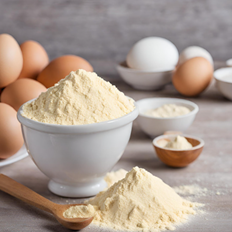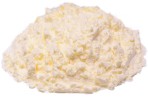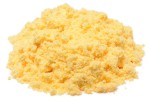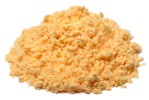Egg Powders
Egg powders, also known as powdered or dehydrated eggs, are a convenient alternative to fresh eggs. Produced by removing the moisture from the eggs, they yield a lightweight, shelf-stable product that easily reconstitutes with water all while retaining its nutritional value.
 One of the key advantages of egg powders is their extended shelf life. Unlike fresh eggs that require refrigeration and have a limited lifespan, powdered eggs can be stored for an extended period without spoiling or growing bacteria if stored correctly. This makes them an excellent option for emergency food supplies, outdoor activities such as camping or hiking, or situations where access to fresh eggs is limited.
One of the key advantages of egg powders is their extended shelf life. Unlike fresh eggs that require refrigeration and have a limited lifespan, powdered eggs can be stored for an extended period without spoiling or growing bacteria if stored correctly. This makes them an excellent option for emergency food supplies, outdoor activities such as camping or hiking, or situations where access to fresh eggs is limited.
Another benefit of using egg powders is their convenience. They eliminate the need for cracking and separating eggs, saving time and reducing mess in the kitchen. Additionally, they are easy to measure and incorporate into recipes since they come in pre-measured quantities.
Types
There are a few different types to look at when trying to choose the correct one for you. Whole egg powder is the perfect match to fresh eggs. Egg whites offer the most protein, doesn’t contain glucose, and is the longest storing option. Egg yolk is a great source for amino acids as well as fat and protein.
The multiple ways to use Egg Powders!
 In cooking, they can be used in various recipes to add richness and texture. They are particularly useful when making omelets, scrambled eggs, a binding agent in meatballs or meatloaf, even being incorporated into sauces and dressings to enhance their flavor and thickness.
In cooking, they can be used in various recipes to add richness and texture. They are particularly useful when making omelets, scrambled eggs, a binding agent in meatballs or meatloaf, even being incorporated into sauces and dressings to enhance their flavor and thickness.
Powdered eggs seamlessly integrate into baking recipes, functioning as direct substitutes for fresh eggs after being reconstituted per package instructions. They work well in cakes, cookies, muffins, and other baked goods where moisture retention is crucial.
Utilizing egg powders during camping expeditions offers numerous advantages. Firstly, their remarkable convenience stands out. Unlike fragile fresh eggs prone to breakage during transportation, powdered eggs are compactly packaged, occupying minimal space in backpacks or camping gear. From scrambled eggs and omelets to pancakes, powdered eggs can be used in various recipes without compromising taste or nutritional value.
Storage
Properly storing egg powders is crucial to maintain their freshness and quality over time. Whether you use them for baking, cooking, or emergency food supplies, following these tips will help ensure that they remain in optimal condition:
1. Choose the right container: Store your powders in airtight containers made of glass or barrier food-grade plastic. These containers will prevent moisture and air from entering, which can lead to spoilage.
2. Maintain consistent temperature: Fluctuations in temperature can cause condensation inside the container, leading to clumping and spoilage. Aim for a stable temperature between 50-70°F (10-21°C) for long-term storage.
3. Keep away from heat and light: Exposure to heat and light can degrade the quality of powdered eggs. Store them in a cool, dry place away from direct sunlight or any sources of heat.
4. Avoid moisture exposure: Moisture is the enemy when it comes to preserving the quality of dehydrated eggs. Ensure that your storage area is free from humidity or any potential water sources.
By following these tips, you can maximize the shelf life and preserve the quality of your powdered eggs for an extended period, ensuring that they are ready for use whenever you need them in your culinary endeavors or emergency situations.
Safety
When it comes to handling and reconstituting, there are important safety considerations that should be followed. By understanding and implementing these guidelines, you can ensure the safe use of egg powders in your culinary endeavors.
First and foremost, it is crucial to store the in proper conditions, as stated above. This helps maintain their quality and prevents any potential contamination. Additionally, always check the expiration date before using the product to ensure its freshness.
When handling, it is recommended to wash your hands thoroughly before and after use. This helps minimize the risk of cross-contamination with other ingredients or surfaces.
During reconstitution, it is important to follow the instructions provided by the manufacturer. Typically, this involves adding a specific amount of water to the powdered eggs and whisking until fully mixed. It is essential to use clean utensils and bowls during this process to avoid introducing any bacteria or contaminants.
To ensure proper food safety, make sure that reconstituted eggs are cooked thoroughly before consumption. This eliminates any potential harmful bacteria that may be present in raw eggs.
By following these safety precautions when handling and reconstituting, you can enjoy their convenience while prioritizing food safety in your kitchen.
If you haven't already discovered the wonders of egg powders in your cooking endeavors, now is the time! Embrace their convenience and versatility to elevate your dishes with ease.



